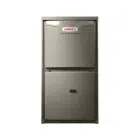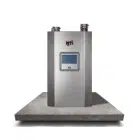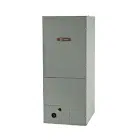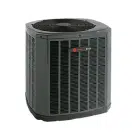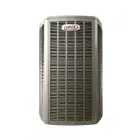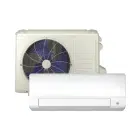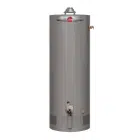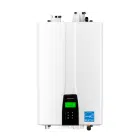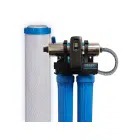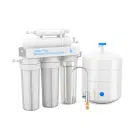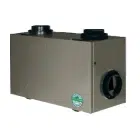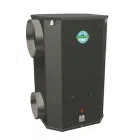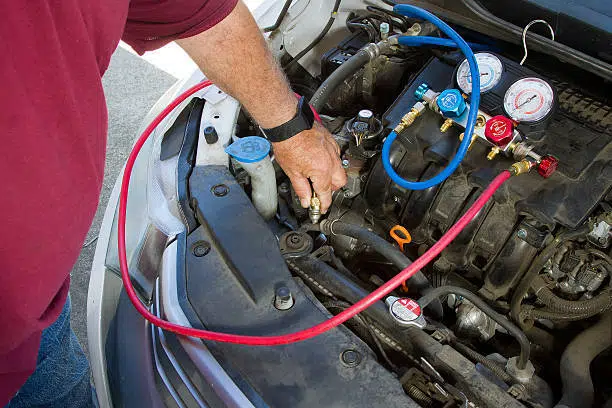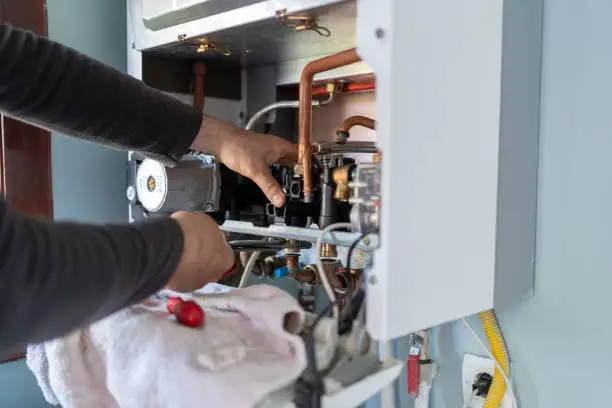
Table of Contents
When the winter chill sets in, the last thing you want is for your boiler to quit on you. Understanding the basics of boiler repair can save you from the cold and prevent costly emergency repairs. This guide is designed to give you the knowledge needed to handle minor boiler issues, recognize when it’s time to call in the pros, and keep your home cozy all season long.
Boiler: All You Need to Know
Before diving into repairs, it’s essential to get familiar with your boiler. Not all boilers are the same, and knowing what kind you have is the first step in troubleshooting.
Types of Boilers
In our experience working across Canada, most homes have one of three types of boilers: combi, system, or conventional.
- Combi Boilers: These are the most common in modern homes because they heat water on demand without needing a separate hot water tank. They’re compact, efficient, and ideal for smaller spaces.
- System Boilers: Perfect for larger homes, these boilers have a separate hot water cylinder but don’t require a cold water tank, making them more efficient and easier to install than conventional systems.
- Conventional Boilers: Often found in older homes, these require both a hot water cylinder and a cold water tank. While they take up more space and are less efficient, they’re still functional in homes with outdated heating systems.
How Boilers Work
All boilers operate on a similar principle: they heat water, which is then circulated through your radiators and taps. The core components include the heat exchanger, which transfers heat from the boiler’s burner to the water, and the circulation pump, which moves hot water through the system. The thermostat controls the boiler, dictating when it should turn on and off to maintain your desired temperature.
Common Boiler Problems
Even the most reliable boilers can run into issues. Here are some of the most common boiler problems you might encounter and what they mean, based on our extensive experience.
No Heat or Hot Water
This is one of the most obvious signs that something is wrong. The cause could range from low water pressure to a malfunctioning thermostat or a pilot light that’s gone out. Sometimes, it’s as simple as a tripped circuit breaker, but it could also signal a more serious issue like a faulty valve or broken diaphragm. Based on our experience, we recommend checking the thermostat settings and boiler pressure first before exploring more complex issues.
Leaks
A leaking boiler is never a good sign. It could be due to a broken seal, a corroded pipe, or a faulty pressure valve. Even a small leak can lead to bigger problems if not addressed promptly, including damage to your home and a significant drop in boiler efficiency. We’ve found that addressing leaks early can save considerable time and money, so keep an eye out for any signs of moisture around your boiler.
Strange Noises
If your boiler starts making strange noises—like banging, whistling, or gurgling—it’s trying to tell you something’s wrong. These sounds could indicate air in the system, a build-up of limescale, or a faulty pump. Ignoring these noises could lead to more severe damage down the line. In our experience, these noises often start small but can escalate quickly, so it’s important to address them as soon as they arise.
Pilot Light Going Out
The pilot light is a small flame that ignites the gas in your boiler. If it keeps going out, it could be due to a draft, a build-up of deposits, or a broken thermocouple, which senses when the flame is on. Without a steady pilot light, your boiler won’t function. We recommend checking the area around the boiler for drafts and ensuring the thermocouple is clean and functioning properly.
Low Boiler Pressure
Your boiler needs the right amount of pressure to circulate hot water effectively. Low pressure can result from a water leak, radiator bleeding, or a faulty pressure relief valve. If you notice your radiators aren’t as hot as they should be, low pressure might be the culprit. We’ve seen that maintaining optimal pressure is crucial for efficient boiler operation, so this is an area worth monitoring regularly.
Radiators Not Heating Properly
If some radiators are hot while others stay cold, or if your radiators take forever to heat up, there might be air trapped in the system, or your radiators might be out of balance. Sludge build-up is another common issue that can reduce heating efficiency. We’ve found that regular boiler maintenance, including bleeding radiators and balancing the system, can prevent these issues.
DIY Fixes for Home Boiler Repair
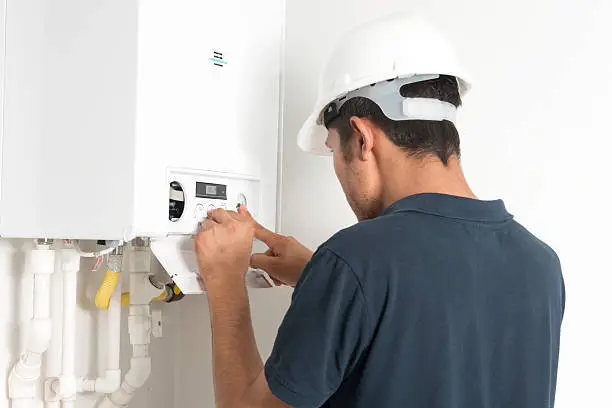
While some boiler problems require a professional touch, there are a few you can safely tackle on your own. Here are some DIY fixes that might save you a service call.
Repressurising the Boiler
If your boiler pressure is too low, it won’t work efficiently. Repressurising it is usually straightforward. Check the pressure gauge on the boiler—if it’s below 1 bar, it’s time to add some water. Most boilers have a filling loop that allows you to add water from the mains supply. Turn the valve until the pressure reaches between 1 and 1.5 bar, then close the valve. From our experience, this simple step often resolves many issues related to heating and hot water.
Bleeding Radiators
If your radiators are cold at the top but warm at the bottom, trapped air is likely the issue. Bleeding the radiators releases this air, allowing hot water to fill the entire unit. All you need is a radiator key, which you can find at most hardware stores. Turn the key counterclockwise until you hear a hiss, then close the valve once water starts to escape. We’ve seen that bleeding radiators regularly can significantly improve heating efficiency and is a common step in effective home boiler repair.
Checking the Thermostat
Sometimes, the problem isn’t with the boiler but with the thermostat. Make sure it’s set to the right temperature and mode. If it’s a programmable thermostat, check that the schedule is correct. Also, ensure the batteries are working; sometimes, a simple battery change can solve the issue. In our experience, many heating issues are actually related to the thermostat rather than the boiler itself.
Resetting the Boiler
If your boiler has gone into a lockout mode due to a minor fault, resetting it might fix the problem. Locate the reset button (usually on the control panel), press it, and hold for a few seconds. If the boiler fires up again, you’re good to go. However, if the lockout recurs, it’s a sign of a deeper issue that needs professional attention. We recommend trying a reset once, but if the problem persists, don’t hesitate to call in the experts.
If you’ve decided to tackle boiler repair yourself, it’s crucial to familiarize yourself with these 10 Essential Boiler Safety Precautions before you begin.
When to Call a Professional for Boiler Repair
While DIY fixes can resolve some issues, there are times when you need to call in the pros. Knowing when to step back can prevent further damage and ensure your safety.
Complex Issues
If your boiler is leaking gas, making loud banging noises, or not responding at all, it’s time to call a professional. These are signs of more significant issues, like a broken heat exchanger or a faulty gas valve, which can be dangerous to fix on your own. In our experience, trying to fix these problems without the proper expertise can lead to more harm than good.
Safety Concerns
Boilers involve gas and electricity, both of which can be hazardous. If you smell gas or suspect a gas leak, turn off the boiler, open windows for ventilation, and call a professional immediately. Similarly, if there’s an electrical issue, it’s best to leave it to the experts. We always stress that safety should be your top priority, and professional intervention is crucial when dealing with potentially dangerous situations.
Regular Maintenance
Even if your boiler seems to be running fine, it’s essential to have it serviced annually by a certified HVAC technician. Regular maintenance can catch potential problems early, extend the life of your boiler, and ensure it’s operating safely and efficiently. Based on our extensive experience, we’ve found that annual maintenance is the best way to avoid unexpected breakdowns and keep your system running smoothly.
Aspect | DIY Boiler Repair | Professional Boiler Repair |
|---|---|---|
Cost
| Typically low, just the cost of parts and tools. | Higher upfront cost, but often more cost-effective long-term. |
Skill Level Required | Basic to moderate; suitable for minor fixes and maintenance. | High; requires professional training and certification. |
Time Investment
| Varies; can be quicker for minor repairs but longer for complex issues. | Generally faster, especially for complex issues. |
Tools Needed | Basic household tools, plus any specific tools for the repair. | Professionals bring specialized tools and equipment. |
Safety Risks | Higher risk, especially if dealing with gas, electricity, or complex systems. | Lower risk; professionals are trained to handle hazardous situations safely. |
Quality of Repair | May vary depending on your skill and experience. | High; professionals ensure the repair meets industry standards. |
Warranty & Insurance | Repairs may void manufacturer warranties; no insurance coverage. | Repairs often come with a warranty; covered by professional liability insurance. |
Long-Term Reliability | Can be hit-or-miss; depends on the accuracy of the repair. | Typically more reliable and long-lasting. |
Complexity of Problems | Suitable for minor, straightforward issues (e.g., bleeding radiators, resetting). | Suitable for all problems, including complex and high-risk issues. |
How to Select a Professional Boiler Repair Service
When it’s time to call in a professional, choosing the right service is crucial. Here’s how to make sure you’re in good hands.
We recommend looking for an HVAC service provider with solid credentials. They should be licensed and insured, with experience working on the type of boiler you have. Reading reviews and asking for recommendations from friends or neighbors can also help you find a reliable service. We believe transparency is key—avoid companies that are vague about their pricing or the work that needs to be done.
When a professional visits your home, they should conduct a thorough inspection, diagnose the problem, and explain the necessary repairs. They should provide a clear estimate before starting any work. After the repair, they should test the boiler to ensure everything is working correctly.
At HVAC Service Solutions, we prioritize clear communication and quality boiler repair, ensuring you’re confident in the services provided.
Conclusion
Understanding how your boiler works and knowing when to perform a DIY fix versus calling a professional can make a big difference in how smoothly your home runs during the winter months. By keeping an eye on your boiler and performing regular maintenance, you can ensure it stays in good working order, saving you time, money, and stress.
If you’re ever in doubt, don’t hesitate to reach out to our team at HVAC Service Solutions. With our extensive experience and commitment to quality home boiler repair, we’re here to help keep your home warm and your boiler running efficiently, no matter what the Canadian winter throws your way.
Frequent Asked Questions
What are the most common boiler problems homeowners face?
Common boiler problems include no heat or hot water, leaking, strange noises, low boiler pressure, and pilot light issues. These issues can arise due to various factors, such as a malfunctioning thermostat, air in the system, or a faulty valve. Regular maintenance can help prevent many of these problems. For example, if your boiler is making unusual noises like banging or whistling, it might indicate air in the system or a build-up of limescale, both of which are common boiler problems. Addressing these issues early through regular checks and servicing can save you from more significant repairs down the line.
How often should I have my boiler serviced?
We recommend having your boiler serviced annually. An annual service ensures that your boiler is operating efficiently and safely, and it helps to catch any potential issues before they become serious. Regular servicing also extends the lifespan of your boiler and keeps it running smoothly throughout the colder months. During a service, a professional technician will check all the critical components of your boiler, clean any parts that need it, and make any necessary adjustments. This preventive approach to boiler repair is crucial for avoiding unexpected breakdowns and ensuring your heating system runs efficiently.
What should I do if my boiler is leaking?
If your boiler is leaking, it’s important to act quickly. First, turn off the boiler to prevent any further water damage and reduce the risk of electrical issues. A leak could be due to a variety of problems, such as a broken seal, a corroded pipe, or a faulty pressure valve. While minor leaks can sometimes be addressed with DIY home boiler repair techniques, it’s often best to call in a professional. Leaks can lead to more severe damage if not addressed promptly, and a technician can accurately diagnose and fix the root cause of the issue. Regular maintenance can help prevent leaks by catching wear and tear early.
Why is my boiler not producing hot water or heat?
A lack of hot water or heat is one of the most common boiler problems. This issue can stem from several causes, including a malfunctioning thermostat, low boiler pressure, or a broken diaphragm. Before calling a professional, check your thermostat settings and ensure the boiler pressure is within the recommended range (usually 1-1.5 bar). If these seem fine, the problem might be more complex, such as a fault in the motorized valve or an airlock in the system. In such cases, it’s advisable to seek professional boiler repair to avoid causing further damage.
Can I perform home boiler repair on my own?
Some minor issues can be addressed with DIY home boiler repair, such as repressurizing the system, bleeding radiators, or resetting the boiler. However, it’s essential to understand your limits—boilers involve gas and electricity, which can be dangerous if handled incorrectly. For more complex problems, like a gas leak, persistent low pressure, or recurring pilot light issues, it’s best to call a professional. Attempting repairs without the proper knowledge can not only worsen the problem but also void your warranty or lead to safety hazards.
How can I improve my boiler’s efficiency?
Improving your boiler’s efficiency can lead to lower energy bills and a more comfortable home. Start by scheduling regular maintenance, which can help ensure your boiler is running at peak efficiency. Insulating your pipes to reduce heat loss, installing a programmable thermostat, and bleeding your radiators regularly are also effective ways to boost efficiency. If your boiler is older (over 15 years), consider upgrading to a newer, more energy-efficient model. On our projects, we’ve noticed that these steps not only improve efficiency but also extend the lifespan of your heating system, reducing the need for frequent boiler repair.
What are the signs that my boiler needs repair?
Several signs indicate that your boiler might need repair. These include unusual noises (such as banging or whistling), a drop in water pressure, inconsistent heating, and an unusually high energy bill. Leaks around the boiler, frequent boiler shut-offs, and issues with the pilot light are also red flags. If you notice any of these symptoms, it’s essential to address them promptly. Ignoring these warning signs can lead to more severe problems and costly repairs. Regular checks and maintenance are key to identifying and fixing issues early, keeping your home boiler repair needs to a minimum.
Is it worth repairing an old boiler, or should I replace it?
Deciding whether to repair or replace an old boiler depends on several factors, including the age of the boiler, the frequency of repairs, and the cost of those repairs. Generally, if your boiler is more than 10-15 years old and requires frequent repairs, it might be more cost-effective to replace it with a new, energy-efficient model. Newer boilers are more reliable and efficient, which can save you money on energy bills in the long run. However, if the necessary repairs are minor and the boiler is otherwise in good condition, a repair might be sufficient. A professional HVAC technician can provide advice tailored to your specific situation.
What should I do if my boiler pressure is too low?
If your boiler pressure is too low, your heating system won’t work efficiently. You can usually tell if the pressure is low by checking the pressure gauge on the boiler—it should read between 1 and 1.5 bar. If it’s below this range, you can repressurize the boiler yourself using the filling loop, following the manufacturer’s instructions. However, if the pressure continues to drop after repressurizing, there may be a leak or another issue within the system. At this point, it’s advisable to seek professional help to diagnose and fix the problem, as consistently low pressure can lead to further damage requiring more extensive boiler repair.
What does an annual boiler service include?
An annual boiler service is a comprehensive check-up that ensures your boiler is running efficiently and safely. During the service, a certified HVAC technician will inspect the boiler’s key components, clean any parts that need it, and check for wear and tear. The service typically includes testing the pressure, examining the heat exchanger, and checking for any leaks or corrosion. The technician will also ensure that the boiler is venting properly and that all safety devices are functioning correctly. This preventive maintenance is crucial for avoiding common boiler problems and extending the life of your system. We always recommend scheduling a service before the winter season to ensure your boiler is ready to handle the cold.
Share

